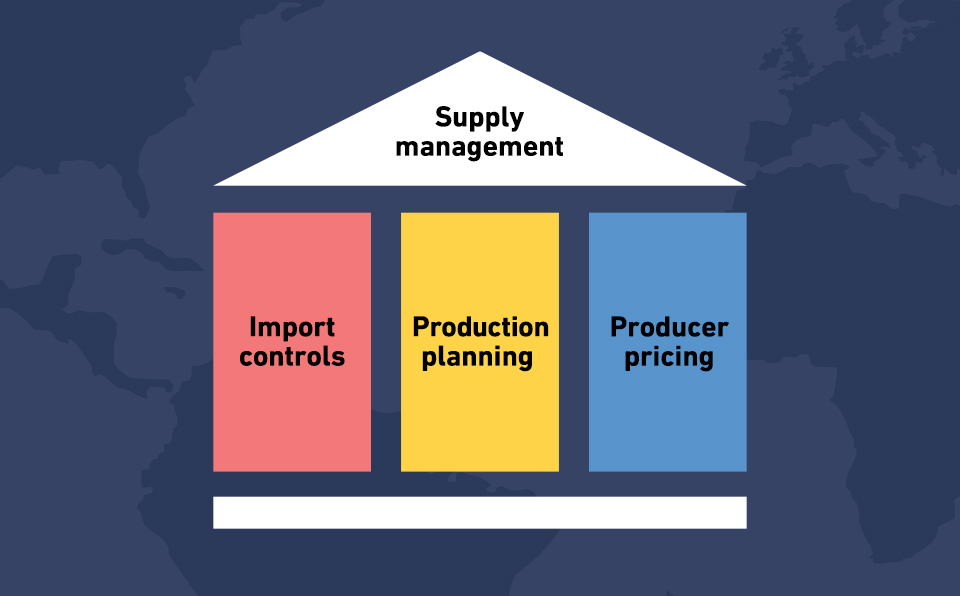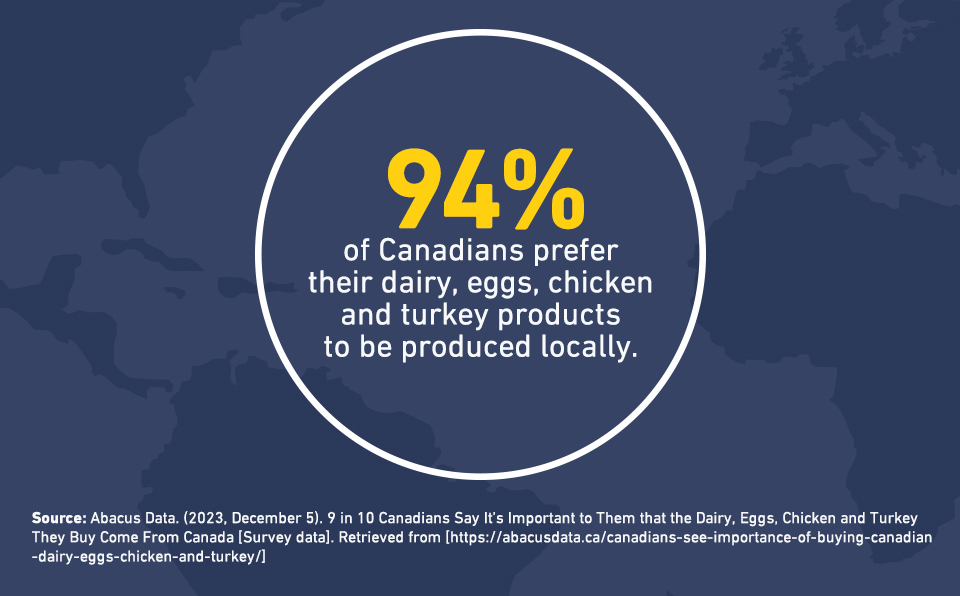
Why trade matters to Canadian egg farmers
By Egg Farmers of CanadaEvery year, Canadian egg farmers produce over 10 billion eggs, helping to support the food security of our communities and food sovereignty of our country. This achievement is made possible by the uniquely Canadian system of supply management, which enables egg farmers to plan production to meet Canadian demand. Given Canadian egg farmers don’t export eggs, why does trade matter to them? Keep reading to find out!
Supply management is built upon three pillars: import controls, production planning and producer pricing. Each of these pillars are equally important to ensure the system operates smoothly. When it comes to trade, it’s critical that the pillar of import controls is maintained to uphold supply management.

The World Trade Organization (WTO) is a global organization that establishes the rules of trade between member nations, with the goal of ensuring trade flows as smoothly and freely as possible. In 1994, the WTO’s Agreement on Agriculture recognized that all countries have sensitive domestic industries and that countries can choose from a variety of accepted tools to preserve those industries.1 In the case of supply-managed agriculture—that includes dairy, poultry and egg products—Canada chose to use Tariff Rate Quotas (TRQs) as an import control measure to keep imports predictable.
TRQs act like a dam. The dam is open until a specific, agreed upon number of eggs and egg products are imported into Canada—this is the amount agreed upon in international trade agreements. Once the set amount of egg imports is reached, the dam closes. In the case of eggs, a closed dam means a tariff of 163.5% is applied on imported eggs beyond the predetermined amount.
The purpose of TRQs is simply to discourage additional imports, allowing egg farmers to match the Canadian demand for eggs and avoid surplus, while factoring in required imports and domestic production. Canada has successfully negotiated many trade agreements while maintaining import controls to uphold supply management.
Supply management is recognized by the international farming community as a transparent and compliant policy measure that promotes stability for the domestic market. For example, the World Farmers’ Organization, which represents farmers’ voices globally, recognizes the important role of supply management in protecting farmers’ livelihoods and the vibrancy of rural communities in its policy on international trade:
“All governments should ensure that domestic policy is fully transparent and complies with international obligations, while taking into account national circumstances and recognizing the need for measures and programs including orderly marketing and supply management to protect the livelihoods of farmers and rural communities.” 2

Canadian egg farmers work hard every day to produce fresh, local eggs for Canadians while upholding rigorous standards for food quality and animal care. We know Canadians prefer Canadian food—in fact, an Abacus Data survey confirmed that 94% of Canadians prefer their dairy, eggs, chicken and turkey products to be produced locally in Canada under supply management.3 With supply management, we can deliver on Canadians’ preferences for made-in-Canada food.
To learn more about the system of supply management and its benefits for Canadians, read our supply management fact sheet.
1 World Trade Organization (1994, April 15). Agreement on Agriculture. wto.org
2 World Farmers’ Organisation. (2023, June). WFO trade policy (GA-2023 adopted). wfo-oma.org
3 Abacus Data. (2023, December 5). 9 in 10 Canadians Say It’s Important to Them that the Dairy, Eggs, Chicken and Turkey They Buy Come From Canada [Survey data]. abacusdata.ca